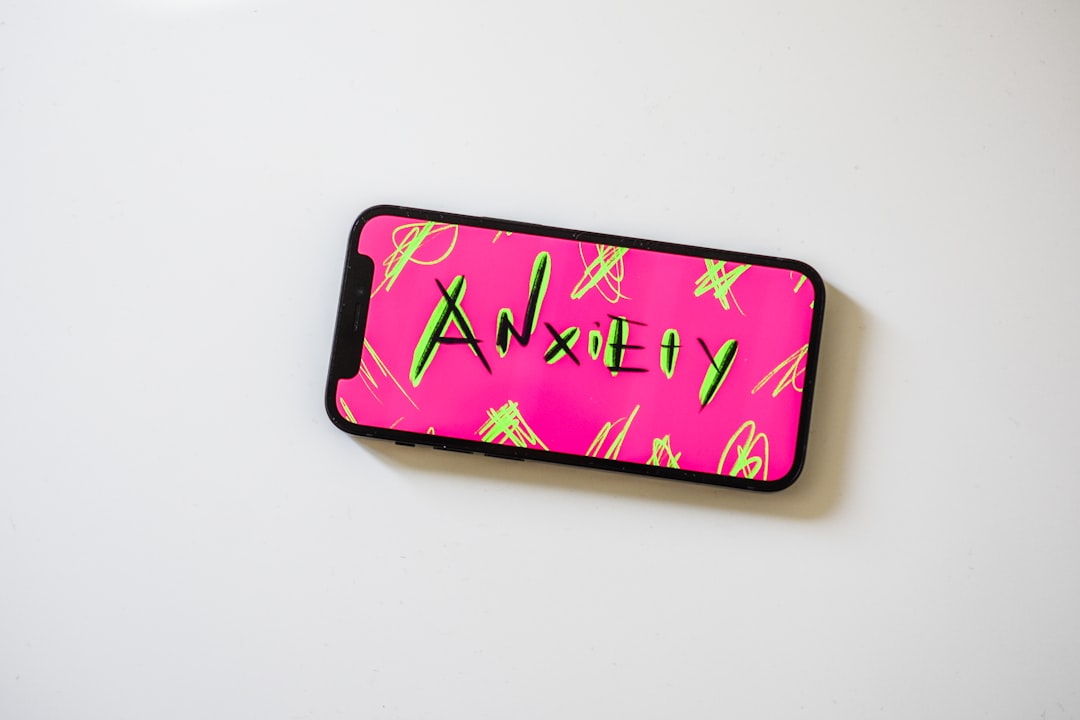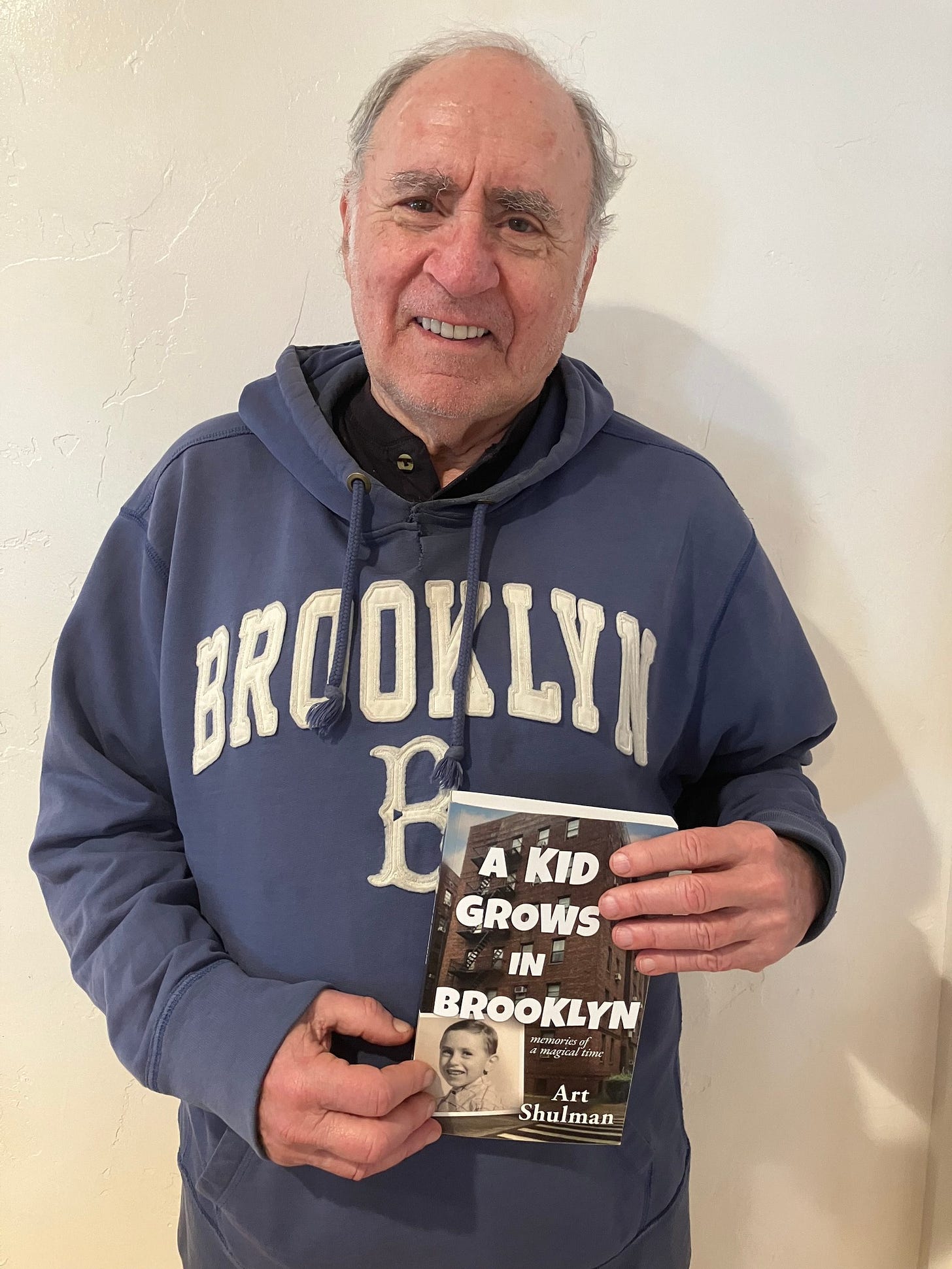10 Essential Tips for Writers to Manage Anxiety and Panic Attacks
Handy tips that work for every writer...
I know this issue well.
Anxiety and panic attacks can be particularly challenging for writers, as the creative process often involves delving into our emotions and experiences. If you’ve been diagnosed with some kind of anxiety disorder, welcome to the club.
Forbes Health: Anxiety disorders are the most common mental illnesses in the U.S. and affect over 40 million adults, or 19.1% of the population. Generalized anxiety disorder (GAD) is the most common anxiety disorder in the U.S. with 6.8 million adults affected.
Here are some tips and resources to help writers manage anxiety and panic attacks because, let’s face it, life can be hard.
Tips For Managing Anxiety and Panic (in no particular order):
1. Understand the Triggers: What is causing your anxiety? For me, it’s either money, health, or family. Identifying what triggers our anxiety or panic attacks is the first step to managing them.
This can take sitting with some deeply uncomfortable feelings, so to find a release, write about it! Take note of situations, thoughts, or feelings that precede these episodes.
2. Practice Mindfulness: Mindfulness techniques, such as meditation and deep breathing exercises, can help calm the mind and reduce anxiety. Apps like Headspace or Calm offer guided sessions that can be helpful.
If you have an Apple Watch or other type of tracker, you can add breathing and mindfulness sessions to your reminders. I do this, and it helps a lot. Walking around, even for only a minute, can also help redirect/reset our brains.
3. Set Realistic Goals: Set achievable writing goals and deadlines to avoid feeling overwhelmed. Breaking down tasks into smaller steps can make them more manageable.
And all writing ‘counts,’ even if it’s just a line or two on a napkin. Give yourself credit.
You deserve it. I deserve it. Group hug.

4. Seek Professional Help: I can speak to this first hand. I’ve dealt with an anxiety disorder since I had my kids (if anything will make you anxious, it’s having children), now 24 and 18. I’ve been well-managed for decades on a regimen that works for me.
However, in January of this year, I began experiencing absolute panic upon waking. I sleep fine, but once I’m awake before I even get out of bed, my stomach is in knots and feels like jelly, my thoughts are racing about the existential dread of the day, and my hands are shaking** so badly I could barely get myself dressed…maybe you relate.
**Note: Shaking isn’t necessarily a bad thing. More here on Psychology Today.
This was a distinctly different kind of anxiety - a shift into debilitating panic, making it difficult to eat, concentrate, or communicate well. I had a talk with myself: what would you advise a friend? To ask for help. Duh.
So I did. I reached out to my doctor, a coach, close friends, and family about what was going on. I’m working closely with my docs, trauma coach, and therapist to help me learn how to cope. Everything is getting back on track.
The act of asking for and receiving help was extremely terrifying and, at the same time, gratifying.
If anxiety or panic attacks are frequent and debilitating, seeking help from a mental health professional is crucial. They can provide therapy and medication if necessary.
Websites like Psychology Today offer directories to find therapists.
5. Join Support Groups: Joining support groups or online communities for writers with similar experiences can provide a sense of camaraderie and understanding.
Websites like Anxiety and Depression Association of America offer resources and support group information.
6. Limit Stimulants: Reducing or eliminating caffeine and other stimulants from our diet can help decrease anxiety levels. This one is tough for me because I live for my morning coffee. I only have one, albeit large, mug, and I’m done with caffeine for the day. It’s water for the rest of the day.
One of my writing colleagues sips on energy drinks all day. Another goes through a few pots of tea as they write. Cutting down can significantly impact your ability to calm.
7. Exercise Regularly: Physical activity can reduce stress and improve mood. Even a short daily walk (or several, even around the house) can make a significant difference.
Listen, I used to be an elite gymnast. I ran track. I hiked and cycled and spun. Now that I’m sixty, my knees pretty much only allow brisk walking, light weights, and some yoga.
That’s okay. Movement is another key to calming our anxiety.
8. Establish a Routine: Having a regular writing routine can provide structure and a sense of control, which can help reduce anxiety. Read more of my tips here ⬇️
Effortlessly Incorporate Writing into Your Busy Day with These 10 Proven Strategies
Finding time to write while balancing a hectic life and busy schedule can be challenging, but it's definitely doable with some strategic planning and self-discipline. I’ve written eight books (so far) and am currently working on one fictional novelette and a nonfiction guide to writing trauma.
9. Use Writing as Therapy: Writing can be a therapeutic way to process emotions and reduce anxiety. Keeping a journal or writing about one's experiences can be a release on its own.
Nobody is standing over your shoulder saying, “You can’t write that!” (hopefully), so give yourself permission to let it all out. Have an ugly cry in the pages of your journal. Write what scares you.
The only really good piece of advice I have for my students is, 'Write something you'd never show your mother or father.' And you know what they say? 'I could never do that!'
~ Lorrie Moore
10. Educate Yourself: Reading books or articles about anxiety and panic attacks can provide valuable insights and coping strategies. Websites like the National Institute of Mental Health offer educational resources.
I’ve also taken a six-month trauma recovery coaching course through the International Association of Trauma Recovery Coaching. More here.
Remember, it's important for writers to prioritize our mental health and seek help when needed. By taking proactive steps and utilizing available resources, writers can manage anxiety and continue to thrive creatively.
*I am not a physician or mental health care specialist. The tips provided are general suggestions and should not replace professional medical advice. If you are experiencing anxiety or panic attacks, please consult with your own doctor or a qualified mental health professional for personalized advice and treatment.
Resources For Help
If you or someone you know is experiencing a mental health crisis, there are several online chat lines and resources available for immediate support:
1. National Suicide Prevention Lifeline (USA): Provides 24/7, free, and confidential support for people in distress. You can chat online or on the phone, or text 988 for immediate help.
2. Crisis Text Line (USA): Text HOME to 741741 to connect with a trained crisis counselor, available 24/7.
3. Samaritans (UK): Offers 24/7 support. You can email jo@samaritans.org for a response within 24 hours or visit their website for more contact options.
4. Lifeline (Australia): Provides 24/7 crisis support and suicide prevention services. You can chat online with a counselor anytime.
5. Canadian Mental Health Association (Canada): Offers various mental health services and crisis lines.
6. IMAlive: An online crisis network with trained volunteers available to chat 24/7.
7. 7 Cups: Provides free, anonymous, and confidential text chat with trained listeners, therapists, and counselors. Visit for more information.
8. BetterHelp: Offers professional online counseling services. Note that this service is fee-based, but they provide financial aid for those who qualify.
It's important to reach out for help if you or someone you know is experiencing a mental health crisis. These resources are there to provide support and guidance during difficult times.
My final thoughts: it’s okay to ask for help. If you don’t receive the help you need, look at some of these resources. I know you can do it.
Recorded Space:
Listen to the replay: Just hosted my monthly #BookMarketingChat on Wednesday, 4/3 at 2 pm pst/5 pm est on Twitter (now X) Spaces at @BadRedheadMedia with special guest, award-winning author Linda R. Sexton, who just published her first gorgeous book on open adoption, 𝑻𝒉𝒆 𝑩𝒓𝒂𝒏𝒄𝒉𝒆𝒔 𝑾𝒆 𝑪𝒉𝒆𝒓𝒊𝒔𝒉: 𝑨𝒏 𝑶𝒑𝒆𝒏 𝑨𝒅𝒐𝒑𝒕𝒊𝒐𝒏 𝑴𝒆𝒎𝒐𝒊𝒓.
Click here now to listen.
Upcoming Audio Space
#AuthorLab Space with me and cohost @VennieKocsis! Join us on the last Tuesday of each month to discuss your author branding, socials, writing (of course), and marketing - FREE! Click here to set a reminder now.
Featured Author
This week’s author is Art Shulman, who is eighty-three years old and just released his first memoir, A Kid Grows In Brooklyn, a delightful read for anyone, at any age, regardless of where you grew up!
Here’s Art with his book! He’s so proud - he should be. It’s an excellent, charming read. More here.
Sponsor
💜 Thank you, Booklinker, my exclusive advertising sponsor for 2024! Free universal book links for all authors. Super easy to use. And they have a fantastic blog here.💜
See you next week, and happy writing!








Agree with all of these, Rachel. I'd also add time in nature - particularly sea, greenery or mountains - and limit watching the News and the toxic side of social media. You're right to highlight the importance of finding triggers. I try to limit my phone use first thing. Starting the day by letting the world into one's head is never the ideal preparation for a constructive day. Exercise and diet are very underrated!